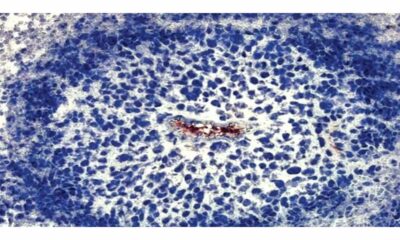According to a study, guselkumab treatment for psoriasis does not raise cancer rates over time when compared to the general population or psoriasis patients.
“Safety of biologic therapies over time is an important topic of concern for both patients and dermatologists,” Andrew Blauvelt, MD, MBA, investigator at the Oregon Medical Research Center, told Healio. ” Risk of developing cancer in patients with psoriasis on long-term biologic therapy has been of particular interest, given the long-standing boxed warning for lymphoma for patients receiving [tumor necrosis factor] blockers.”
The malignancy rates of patients with moderate to severe psoriasis treated for up to 5 years with guselkumab, a selective interleukin (IL)-23 inhibitor, were compared to those of the general population and the psoriasis patient population in this study. Nonmelanoma skin cancer (NMSC) and in situ cervical cancer were excluded from the calculation of malignancy rates per 100 patient-years (PY).
78.4 percent of the 1,721 patients who were treated with guselkumab received the study drug for the entire five-year treatment period.
24 patients had NMSC (0.34 per 100 PY) and 32 had cancers other than NMSC (0.45 per 100 PY) during the follow-up. There was no indication of an upward trend in the combined malignancy rate among the two guselkumab groups, which was 0.74 per 100 PY (95% CI, 0.56-0.97).
According to the Psoriasis Longitudinal Assessment and Registry, these findings were comparable to the malignancy rate among other patients with psoriasis, which was 0.68 per 100 PY. In addition, these guselkumab rates were in line with what was anticipated for the general population in the United States (standardized incidence ratio, 0.93).
“We found no evidence of increased cancer rates and no evidence of particular types of cancers in these patients,” Blauvelt said. “These data support the view that long-term IL-23 inhibition in general, and long-term use of guselkumab in particular, do not increase rates of cancer.”

 Diabetology2 weeks ago
Diabetology2 weeks ago
 Diabetology5 days ago
Diabetology5 days ago
 Diabetology1 day ago
Diabetology1 day ago
 Diabetology1 day ago
Diabetology1 day ago















